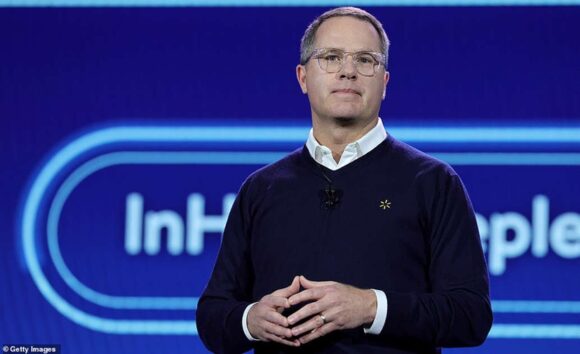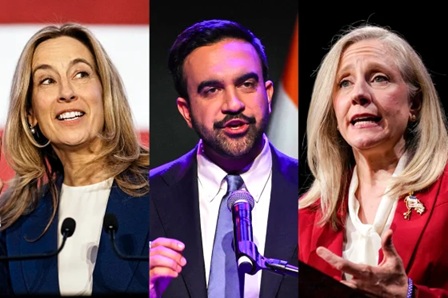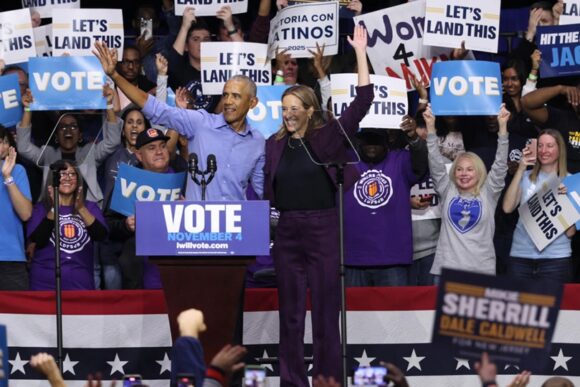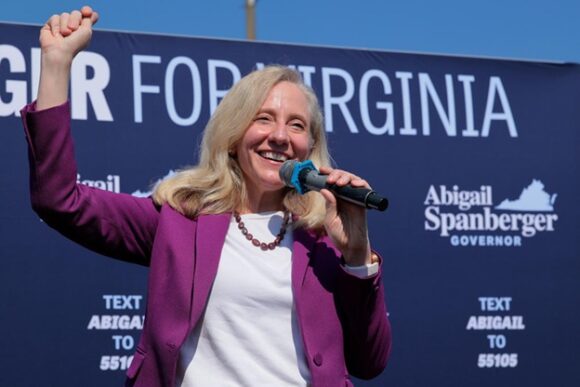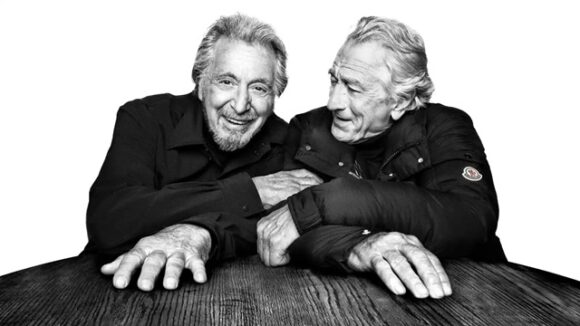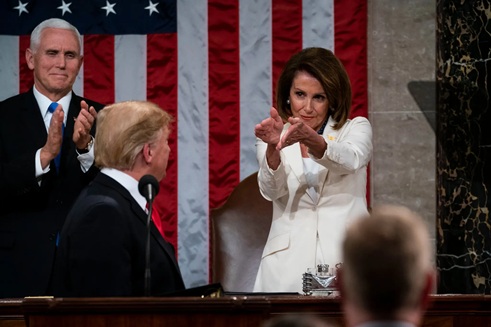
Nancy Pelosi has been an irritant to Trump at one time calling him “a vile creature” in a CNN interview. Credit…Doug Mills/The New York Times
Dear Commons Community,
Representative Nancy Pelosi announced yesterday that she will retire when her term concludes in 2027, ending a remarkable career in which she rose to become one of the most powerful women in American history.
Ms. Pelosi, 85, was the nation’s first and only female House speaker, and she will have represented San Francisco in Congress for 39 years when she leaves office. She has served during an era of seismic change for American society and her own city, from the throes of the AIDS crisis to the legalization of gay marriage, and through the meteoric rise of the tech sector and the nation’s extreme polarization. As reported by The New York Times.
She entered political office later in life and became a hero to Democrats for the way she wielded immense power to push Obamacare, climate change legislation and infrastructure programs through Congress.
“With a grateful heart, I look forward to my final year of service as your proud representative,” she told her constituents in a nearly six-minute video posted on X early Thursday morning, with clips of San Francisco’s iconic cable cars and colorful Victorian homes flashing in the background.
“My message to the city I love is this: San Francisco, know your power,” she continued. “We have always led the way, and now we must continue to do so by remaining full participants in our democracy and fighting for the American ideals we hold dear.”
Ms. Pelosi, who likes to use the phrase “resting is rusting,” led the House Democrats for 20 years, eight of which she spent as speaker. She has also been a prodigious fund-raiser and raised more than $1.3 billion for Democratic campaigns, according to her aides.
But she was reviled by conservatives, who painted her as the scary embodiment of liberal San Francisco values and blamed her for what they considered the nation’s decline.
She has been a chief irritant to President Trump, even to this day, calling him “a vile creature” in a CNN interview that aired this week. She presided over two of his impeachment votes in the House. And he has called her “Crazy Nancy,” with no sense of fondness for his foe.
Her Democratic colleagues said she was unlike any other politician with whom they had worked. Jackie Speier, a Bay Area Democrat who served in the House for 15 years, said that Ms. Pelosi would go down in history “as the most consequential speaker ever.”
“She has a command, a presence. All eyes turn to her,” Ms. Speier said.
Her retirement had been grist for the local and national political rumor mill for several years, and younger Democrats grew increasingly eager to run for her seat. They feared, however, that it would be folly to challenge one of the most powerful politicians in modern history.
Ms. Pelosi, for her part, told CNN days ago that she had no doubt she would win re-election if she were to run for another term.
Still, the overwhelming defeat Democrats suffered last year in the congressional and presidential races has prompted soul-searching within the party — and louder calls for older Democrats to step down and make way for new politicians with fresh ideas.
The race to succeed Ms. Pelosi was already shaping up to be a fierce one before she announced her retirement. Scott Wiener, a Democratic state senator from San Francisco who is a champion of housing construction, and Saikat Chakrabarti, who worked as Representative Alexandria Ocasio-Cortez’s chief of staff, have already announced they were running for the seat — with or without Ms. Pelosi on the ballot.
In recent months, Ms. Pelosi has refused to discuss her career plans, insisting she was focused solely on the passage of California’s Proposition 50, a ballot measure to approve newly drawn House districts. She worked behind the scenes to help Gov. Gavin Newsom craft the measure, which passed on Tuesday, and to raise money for the effort.
It was considered one of her final achievements, both a blow to Mr. Trump, who had sought more Republican seats in the House by gerrymandering in conservative states, and a parting gift to the next generation of California Democrats who could benefit from as many as five additional seats in the state.
Mr. Trump still has strong contempt for Ms. Pelosi.
“The retirement of Nancy Pelosi is a great thing for America,” he said on Thursday in a response to Fox News. “She was evil, corrupt, and only focused on bad things for our country.”
At a packed union hall in San Francisco on Monday morning, Ms. Pelosi was the emcee for a Proposition 50 rally that included Mr. Newsom and labor leader Dolores Huerta.
“This is a moment of truth for America,” Ms. Pelosi told the crowd. “It’s self-defense for our democracy.”
In the audience, union workers wore T-shirts that Ms. Pelosi had autographed for them and pins with drawings of six tiny Nancy Pelosis standing side by side, each wearing a suit in a different color of the rainbow.
At the rally, the ever-stylish Ms. Pelosi was sporting a green corduroy suit and green stilettos, never mind the fall she took in December on a marble staircase in Luxembourg that forced her to get a hip replacement and remain stuck for several months in dreaded flats.
Ms. Pelosi’s career in elected office has been a long one, but it did not span even half her life. Born into a politically powerful family of Democrats in Baltimore — her father and brother each served as the city’s mayor — Ms. Pelosi went the more traditional route for women of her age.
At first, anyway.
She met her husband, Paul Pelosi, at Georgetown University, and the couple moved to his hometown, San Francisco, where she stayed home to raise their five children. During that time, Mr. Pelosi grew his career as a venture capitalist.
As a young mother, Ms. Pelosi found a way to support the Democratic Party by opening up the family’s large home for fund-raisers. That led to friendships with a host of prominent San Francisco Democrats in the 1970s and 1980s, including Willie Brown, Jerry Brown and Phil and John Burton, brothers who served in Congress.
Her connections and fund-raising prowess helped her get elected as the first woman to chair the California Democratic Party.
When Representative Phil Burton died in office, his wife, Sala Burton, replaced him. Sala Burton was soon after diagnosed with cancer and told Ms. Pelosi she wanted her to run for the seat. Ms. Pelosi, who had shrugged off other suggestions to run for elected office, finally agreed.
A special election was held in June 1987, and Ms. Pelosi, then 47, edged out Harry Britt, a gay socialist who had worked as an aide to Harvey Milk, the San Francisco supervisor who was assassinated at City Hall in 1978.
Cleve Jones, who also worked for Mr. Milk and who created the AIDS Memorial Quilt, had backed Mr. Britt. Mr. Jones recalled in an interview that he initially had dismissed Ms. Pelosi as “a society lady.”
“I had the most wrong first impression of Nancy Pelosi,” he said. “I just didn’t take her very seriously.”
But he said his view changed when Ms. Pelosi used her first floor speech in the House to talk about the AIDS crisis as the Reagan administration largely ignored it. That same year, she helped Mr. Jones get his quilt installed on the National Mall in Washington.
In 1990, she fought for the passage of an act named after Ryan White, a teenager who contracted H.I.V. from a blood transfusion and was banned from his school after his diagnosis. The program paid for health care for H.I.V./AIDS patients who lacked medical coverage.
“She’s just always been there,” Mr. Jones said. “She’s more than an ally. She’s family.”
Barbara Boxer, who represented a different part of San Francisco in the House and later became a U.S. senator, said in an interview that she and Ms. Pelosi were constantly confused for each other and lumped together as “the two women from San Francisco.”
They bonded by sitting next to each other during countless flights home. Ms. Boxer praised her friend’s unique combination of her social justice values, driven by her Catholic faith, and her tactical ability to know every facet of every bill and exactly where each member stood on it.
Together, they convinced the federal government to dump a plan to turn San Francisco’s military base, the Presidio, into condominiums. Instead, the government preserved it as a national park.
Karen Bass, the mayor of Los Angeles who served in Congress alongside Ms. Pelosi, said her colleague was a “masterful leader” who listened to widespread dissent in her caucus, but used her smarts and persuasion to repeatedly corral them and win key votes.
“I was in awe watching her,” she said.
Ms. Pelosi’s rise — and her wins on Capitol Hill — made her a regular target for conservatives. During the Jan. 6, 2021, attack on the U.S. Capitol, some rioters made a beeline for her office, tore down her wooden nameplate and broke into her chambers. One man, who was later prosecuted, was seen sitting in her chair with his feet propped up on her desk in a display of defiance.
The next year, in October 2022, her husband was brutally attacked in the Pelosi home by a man living in the Bay Area who seemed obsessed with right-wing conspiracy theories.
On Monday, however, Mr. Pelosi was at the union hall with his wife, appearing healthy.
At the Proposition 50 rally, Mr. Newsom thanked Ms. Pelosi for her work on the ballot measure.
“Some people go off and they talk about the way the world should be, but they don’t do anything to damn manifest it,” he said. “Nancy Pelosi doesn’t go out to try to make points. She makes a difference.”
Ms. Pelosi stood behind him, beaming. Then, she exited the stage.
She was a giant for the Democratic Party! No one has filled her shoes in Congress.
Tony





